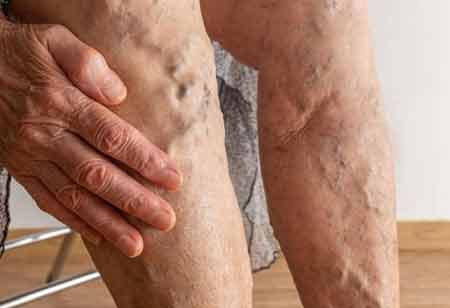DVT Causes: What You Need to Know
Surgeries, infections and inflammations are some of the major reasons for Deep Vein Thrombosis (DVT).

By
Medical Care Review | Friday, June 21, 2024
Stay on top of your health and well-being with exclusive feature stories on the top medical clinics and treatment centers, expert insights and the latest news delivered straight to your inbox. Subscribe today.
Surgeries, infections and inflammations are some of the major reasons for Deep Vein Thrombosis (DVT).
FREMONT, CA: If blood flows too slowly through the veins, it might form a clump of blood cells known as a clot. Deep vein thrombosis (DVT) usually occurs in the lower leg, thigh, or pelvis but can also arise in other parts of the body. In certain situations, DVT might result in fatal health consequences. That is why, if individuals suspect they have one, they should consult a doctor immediately.
Symptoms of DVT include: Not everyone with DVT experiences symptoms. However, one might notice any of the following.
● Soreness or pain while standing or walking.
● Unexpected swelling of the legs or arms
● Warmth in the painful areas.
● Skin that appears red or blue.
● Enlarged veins.
If a blood clot breaks free and flows through the bloodstream, it could get stuck in a blood vessel in the lung. Doctors refer to this as a pulmonary embolism or PE, and it could be fatal.
Some people are unaware they have DVT until it appears. Symptoms of PE include:
● Breathlessness
● Chest pain worsens when people take a deep breath.
● Elevated heart rate.
● Spitting blood.
The causes of DVT include items that prevent blood from:
● Flowing through the leg, thigh, or pelvis.
● Clotting appropriately
This is frequently the result of damage to one of the veins caused by surgery, injection, inflammation and injury.
Many variables can increase one's chances of developing DVT. Listed below are some of the most common:
Sitting for extended periods: When individuals sit for an extended period of time, the muscles in their lower legs remain immobile. This makes it difficult for blood to flow and move around normally. Long flights and car rides can put them in danger.
Pregnancy: Carrying a baby increases strain on the veins in the legs and pelvis. Furthermore, a clot can form up to six weeks after giving delivery.
Age: DVT can occur at any age, although the risk increases after age 40.
Bed rest: When individuals are in the hospital for an extended period of time, their muscles can become stiff, increasing their chances of developing a DVT.
Obesity: BMI measures how healthy the weight is in relation to the people's height.
Some hereditary blood diseases: Some inherited illnesses can cause the blood to thicken or clot more frequently than usual.







